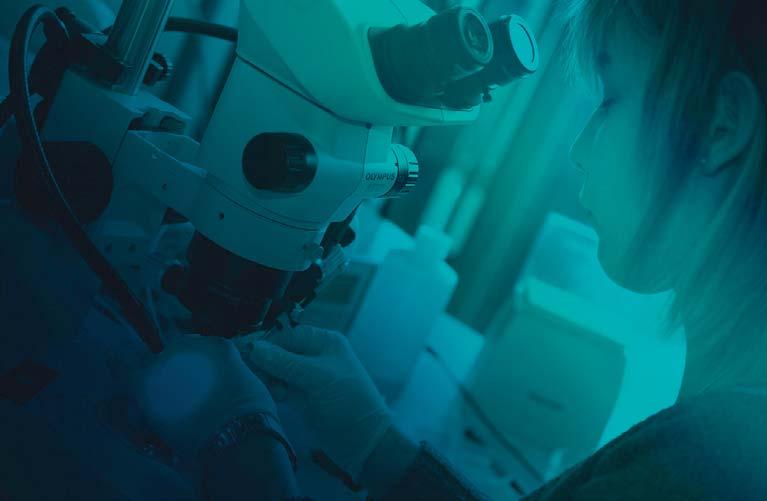What do the Walloon projects WaloSCRAP and BATILOOP consist of? These two projects are linked to the identification of deposits of recyclable materials in Wallonia which combine several characteristics: ¾ A challenge for industries given the volumes concerned; ¾ The characteristics that allow for the deployment of a “selfcarrying” business model; ¾ Their capacity to generate activities and income.
© GreenWin
BATILOOP and WaloSCRAP have made it possible to build innovation partnerships in the field of recycling for plaster, flat glass, automotive glass etc.
CONSTRUCTION 4.0 is a key stake for our future.
Via WaloSCRAP we deal with many sectors such as the plastics sector via the implementation of PEPIT – Polymers Ecocircularity Platform for an Industrial Transition. PEPIT is a platform of partners, a group of technologies, skills, equipment and a network of experts.
What partnerships have you developed? 145 innovation partnerships have been developed in our strategic sectors. We work tirelessly on “interoperability” with other clusters, in particular in the field of the circularity of polymer production. Two years ago, we signed an interregional Memorandum of Understanding with our Flemish alter ego Catalisti, and this agreement has itself generated an agreement between the Walloon, Flemish and Brussels administrations to facilitate putting interregional projects together, whatever the size of the consortium partners. This was and still is an historic first in Belgium. The goal is to allow for smoother innovation opportunities and to stimulate the creation of direct and indirect jobs within the interregional projects.
The platform's goal is to accelerate innovations in industry based on three technological lines: mechanical recycling, chemical recycling and biotechnologies. It is created and acts with a view to the integration of these lines into a circular economy so as to allow for the circularity of plastic materials. It has a threefold objective: ¾ making an integrated technological network accessible to industries for the performance of specific tests and analyses, in particular with a view to reducing the risks linked to the launching of innovation projects; ¾ ensuring the rapid start-up of concrete projects - via the pooling of skills and equipment and a direct connection between the research players and industry; ¾ accelerating the bringing to market of competitive industrialisable solutions, by allowing industries in Wallonia to access a regional skills pool via a platform that groups together several Approved Walloon Research Centres working in partnership on project guidance and feasibility.
Could you give us a few examples of projects bearing the cluster's label in R&D and training? We have several success stories of which we are very proud, and here is a selection. ATISOL C2C develops new solutions for building insulation by combining three advantages: use of circular materials whose energy performances are more efficient and that are easier to implement. The project is led by DERBIGUM (Imperbel) and made up of partnerships between manufacturers of insulation materials, coatings, adhesive materials, an architecture consultancy, a university and several CRAs.
Could you tell us about the LCiP project? How do you rate it as regards the Walloon SMEs involved? LCiP (Life Cycle in Practice) is a European project, which the cluster has been a partner. Its goal was to make life cycle analysis (LCA) accessible to SMEs.
MEDIX focuses on micropollutants in effluents from the hospital and pharmaceutical sector, with some success. This project led by JOHN COCKERILL Group brings together a company active in sewage treatment and one active in ecodesign, hospitals, cutting edge expertise that is the result of European projects involving some Universities and CRAs.
8 Belgian SMEs have played the game and benefited as pioneers from customised tools as well as being able to take strategic decisions to adapt their business model to the LCA principles. These are businesses such as PREFER, MOBIC, PCIM, ISOHEMP, RUBBERGREEN, PUR VER, BIOWASTE RECYCLING and PAN-TERRE.
For its part, GreenTechs is a training course aimed at production and laboratory technicians in chemistry and sustainable materials production. Its objective is to place skilled people on the job market in sectors with a shortage of candidates, prepared for the necessary changes in industrial apparatus, with a concern for the environment and safety. It is a matter of meeting needs for qualified jobs in green chemistry. At least 80% of trainees have returned to direct employment after the training course. CEFOCHIM was the project leader.
In addition, the cluster has put in place a resource centre articulated around 3 of our members: CSTC, MATERIA NOVA and ULiège-PEPS. It is consequently perfectly possible for any interested SME to contact the cluster in order to access the services of this resource centre. 121

















































































































